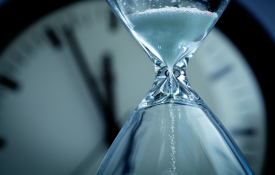-
New UCLA institute will study — and spread — kindness
A friendly smile. A food pantry donation. Or, a remarkable act of Los Angeles benevolence — allowing a driver to cut in front of you. Such acts of kindness have a self-serving upside, too, as science has conclusively shown they also make you healthier. Now UCLA is poised to advance that science with the Wednesday launch of the world’s first interdisciplinary research institute on kindness, which will explore, for instance, how and why being nice to others reduces depression and the risk of cancer and cardiovascular disease.
-

Networking May Not Pay Off for Everyone
Professionals who invest time in networking against their personal preferences may find that their work suffers as a result, a study suggests.
-

Under Time Pressure, People Tell Us What We Want to Hear
When asked to answer questions quickly and impulsively, people tend to respond with a socially desirable answer rather than an honest one, a set of experiments shows.
-

New Research from Psychological Science
A sample of research exploring peripersonal space and visual search and memory.
-
New Evidence Reveals Training Can Reduce Cognitive Bias And Improve Decision-making
Ever since Daniel Kahneman and Amos Tversky formalized the concept of cognitive bias in 1972, most empirical evidence has given credence to the claim that our brain is incapable of improving our decision-making abilities. Scientists regularly remind us of the many ways cognitive biases interfere with the choices we make. There have been over 50 Forbes articles linked to this scientific research focus in the past year alone. ... However, our latest field study, published by Psychological Science in September 2019, suggests that one-shot de-biasing training can significantly reduce the deleterious influence of cognitive bias on decision making.
-
Screaming Into The Void: How Outrage Is Hijacking Our Culture, And Our Minds
Social media changed after the 2016 presidential election. "I felt myself getting sucked into feedback loops where I would read something, I would feel outraged about it, [and] I would feel compelled to share it with my friends," says Yale psychologist Molly Crockett. "I would then be sort of obsessively checking to see whether people had responded, how they had responded, you know, lather, rinse, repeat." Molly remembers feeling outraged in early 2017 by the anti-immigration stance of the Trump administration. She saw a friend post a pro-immigration article. After reading it, Molly decided to share it.

